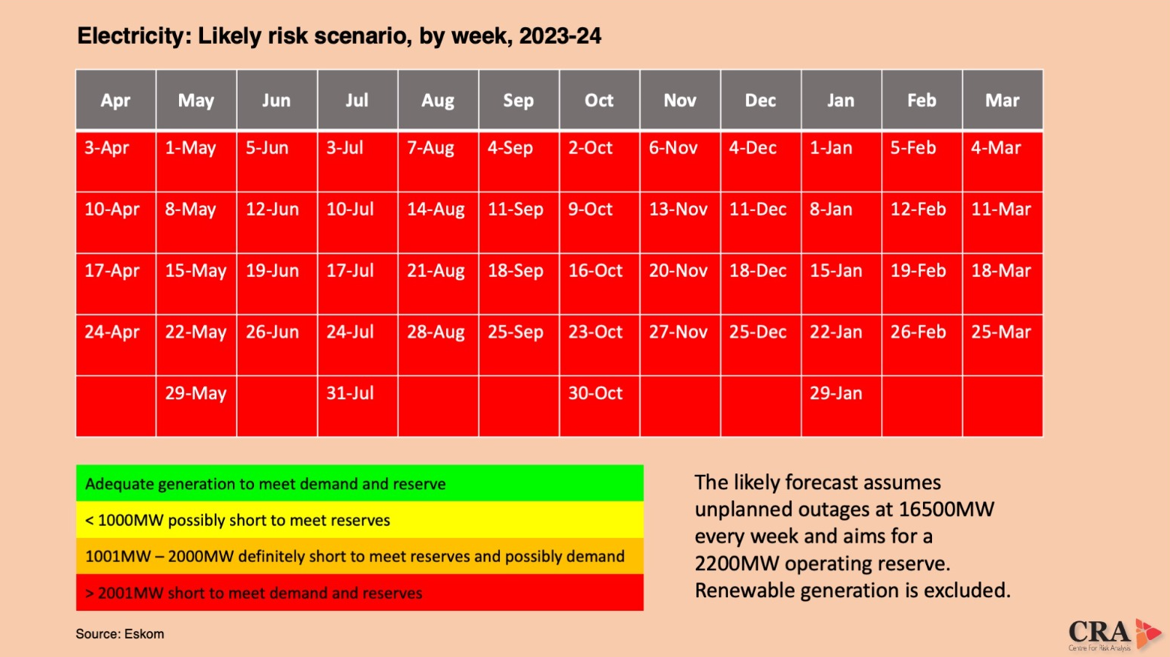![[Opinion] South Africa Faces Social Unrest Risk on Lingering Power Crisis [Opinion] South Africa Faces Social Unrest Risk on Lingering Power Crisis](https://cra-sa.com/media/south-africa-faces-social-unrest-risk-on-lingering-power-crisis/@@images/ddff091f-7b2d-48b0-88bc-95636b0f02dd.jpeg)
South Africa faces a winter of social unrest as sustained power outages limit economic growth and job creation, amid a cost-of-living crisis and increasing political tensions ahead of elections scheduled for next year, according to the Centre For Risk Analysis.
Africa’s most-industrialized economy is likely to be plagued by 43 weeks of severe blackouts, in which state-owned company Eskom Holdings SOC Ltd. will impose daily outages of as much as 5,000 megawatts as it seeks to protect the national power grid from collapse, Chris Hattingh, the think tank’s head of policy analysis, said in a note. The projection is based on the power utility’s latest energy outlook, which suggests it won’t be able to meet demand during any week through March next year, he said.

Eskom, which produces almost all of South Africa’s electricity, has been struggling to meet demand since 2008, and has subjected the nation to power cuts for 15 consecutive months, according to Bloomberg calculations. The outages are driving up the cost of doing business, including for food production and storage, stoking inflation and sapping economic growth prospects.
Electricity Minister Kgosientsho Ramokgopa has warned of more intense power cuts, known locally as loadshedding, during the South African winter that runs from June through August. Severe outages that limit people’s ability to heat and light their homes and cook food in the colder months may stoke discontent in a nation where there’s growing anger over the government’s failure to deliver basic services.
The state has fumbled South Africa’s crises, Hattingh said, citing its decision to roll back a national state of disaster declared in response to the electricity crisis “with nothing to show for it,” as well as plans to temporarily exempt Eskom from disclosing irregular, fruitless and wasteful expenditure.
“Such to-and-fro creates the impression of aimless actionism rather than purposeful activity,” he said. “This could add to the trust deficit between citizens and the government, putting the governing African National Congress under greater electoral pressure in 2024. But the stakes are as high on the upside as they are on the downside, as a resolution of loadshedding by the second quarter of 2024 would surely give the ANC a considerable boost in the election.”